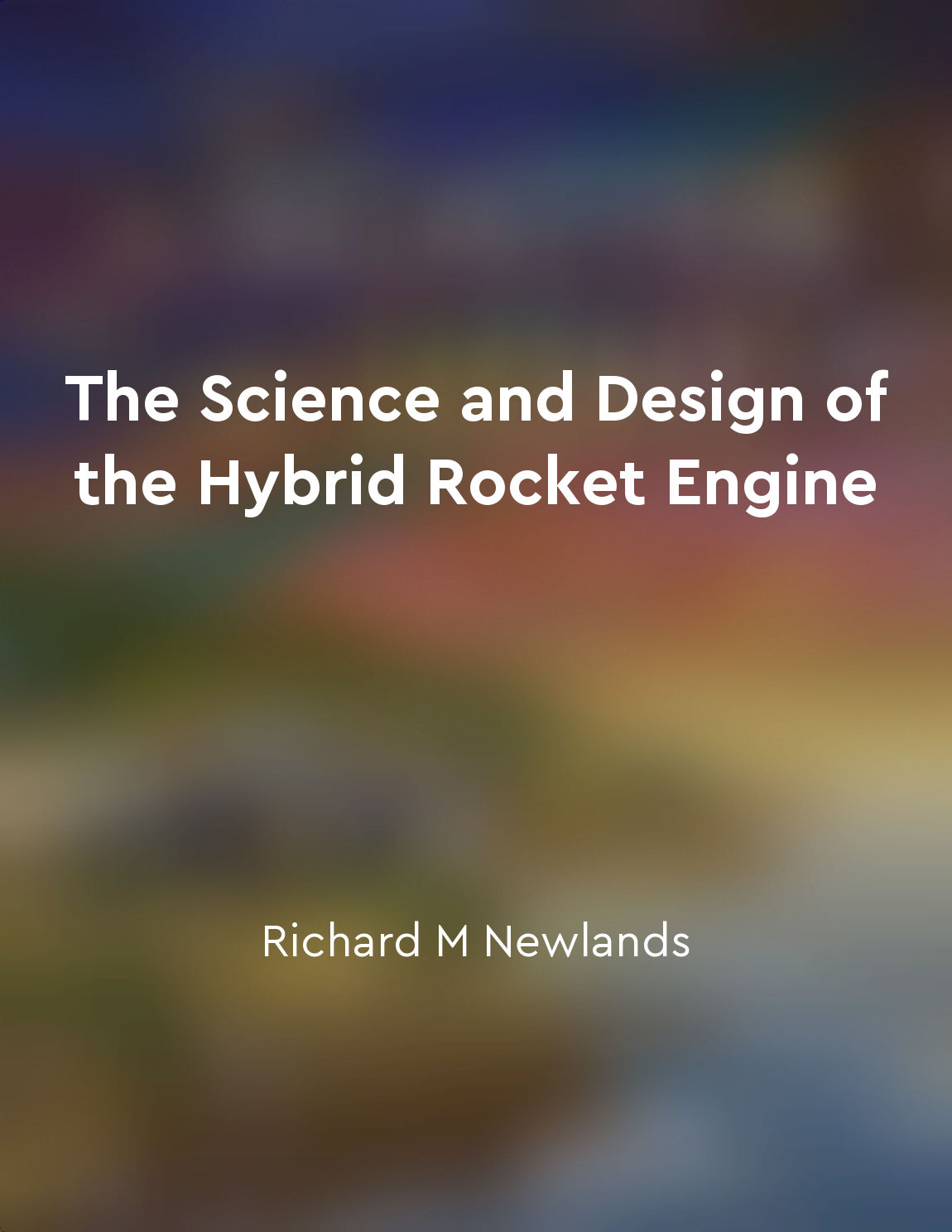Ignition system design principles from "summary" of The Science and Design of the Hybrid Rocket Engine by Richard M Newlands
An ignition system is an important part of any rocket engine and plays a key role in its performance. It is designed to provide reliable and consistent hot ignition of the fuel, thus enabling safe and efficient operation.- Ignition systems are essential for any kind of rocket engine due to the high thrust needed for a successful launch. Proper design is essential to ensure reliable operation and reduce potential risks during the take-off.
- For effective implementation of an ignition system, all related variables must be considered such as fuel design, injector shape and size, pressure levels and spark flame length.
- Injection techniques offer the advantage of having quicker response times combined with more secure ignition process. Although, they require complex hardware configuration and dedicated fuel lines which may add extra complexity and cost.
- When it comes to hybrid rocket engines, two separate ignition techniques can be applied: injection ignition (through direct fluid injection into the combustion chamber) or surface ignition.
- Contrary to the injection approach, surface ignition techniques don't require complex additional hardware but can present less reliable performance and longer reaction times.
- Finally, optimal integration between the ignition system and the overall rocket engineering design is also required for a successful launch.


